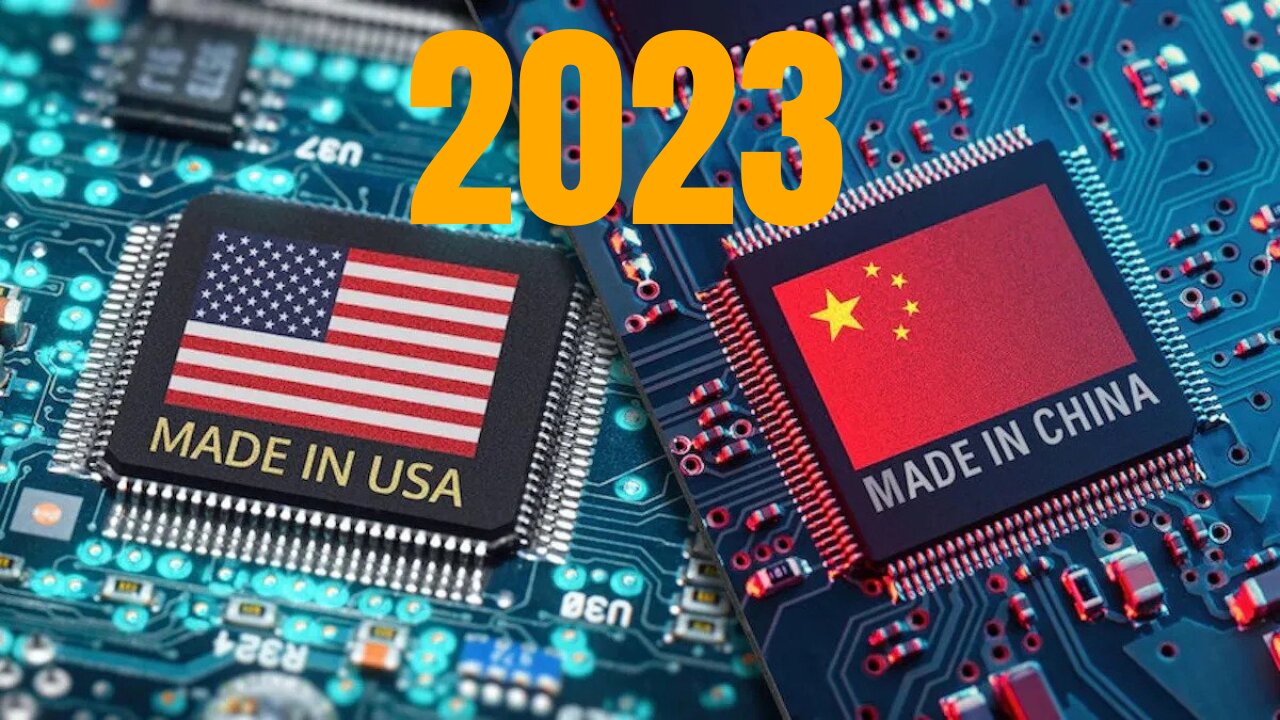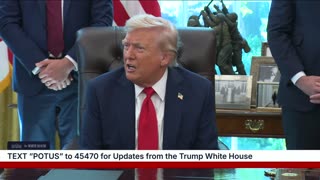Premium Only Content

Why USA is losing the Microchip War over China | 2023
#latestnews #technology #science #ai #aitechnology #viral #reels #shorts #shortvideo
When historians look back on this year, events like the collapse of Liz Truss’s government and the congressional investigation into the Jan. 6, 2021 attack on the US Capitol may arguably pale in comparison to what the Biden administration announced on Oct. 7.
At least that’s what Lawrence Summers said. Speaking about the powerful wave of US restrictions on China’s semiconductor industry and its technological ambitions more broadly, the former Treasury Secretary and paid Bloomberg TV contributor noted:
“That’s really a seismic change in policy—when it becomes an objective of the US to slow the growth in a quite-general way of another country.”
Building on moves made by the Trump administration to target specific Chinese tech champions (such as Huawei Technologies Co.), President Joe Biden’s team announced a swath of restrictions on the export of some types of chips, and a tightening in rules on the sale of semiconductor manufacturing equipment to any Chinese company.
This week in the New Economy
* Europe’s auto industry is growing anxious over Chinese competition.
* Kenya wants China to extend payment terms on $5 billion of debt.
* Xi Jinping must finally show what third term will look like.
* Hong Kong inflation hits highest since 2015 as economy reopens.
* Lula seeks crucial votes amid Brazil supporters of ex-rival Tebet.
The US-China rift over technology can arguably be traced to a plan Beijing laid out seven years ago, dubbed “Made in China 2025.” It’s a vast blueprint for Chinese enterprises to become globally competitive in 10 industries, en route to becoming globally dominant later in this century.
Chinese leader Xi Jinping underscored his continuing ambition at this month’s Communist Party Congress, where he called for redoubled efforts to “win the battle in key core technologies.” China has indeed become an increasing threat to US leadership in technological fields, triggering the Biden administration’s current defensive crouch.
The new initiatives by Washington have three main effects, according to an analysis by the Fathom China Team at research group Gavekal Dragonomics:
They bar Chinese access to “essential machines, parts and maintenance engineers” for making chips beyond a sophistication level going back to 2014.
They block Chinese companies from buying software tools needed in designing chips, and from making chips in “third-party foundries that use US-origin technology.”
All Chinese customers, not just the military, are barred from the advanced chips used in the most complex operations, such as machine-learning and supercomputing.
How exactly this heightening tech war plays out is uncertain. The industry has developed over decades of untrammeled globalization. During that time, US firms pioneered new designs, Taiwan Semiconductor Manufacturing Co. made them and Dutch company ASML Holding NV dominated chip-making equipment. Japanese companies provided vital specialty chemicals while China did the packaging, assembly and testing.
Industry experts highlight that developing cutting-edge chip production will be an immense challenge for China, and that the US effort to cut off Chinese buyers will eventually prove hugely damaging to western companies.
But modern industrial history suggests China will prevail in terms of the competition. For example, Chinese companies are now global champions of high-speed rail, having picked up the technology they needed in the wake of initial construction by foreign companies including Europe’s Siemens AG and Alstom SA.
“These products are technologies—they’re not magic. And the Chinese task is to reinvent a lot of existing wheels,” Dan Wang, a China tech analyst at Gavekal Dragonomics, told Bloomberg. The measures will “probably accelerate China’s self sufficiency in a lot of different technologies over the longer-term.”
So there’s a case that the latest US moves ultimately amount to an attempt to preserve a market for western companies—years or decades before Chinese competitors leverage the world’s biggest domestic market to push rivals aside. After all, allowing markets to take their course meant that the US—home to once legendary innovation hub Bell Labs—ended up without its own 5G vendor, as Huawei competes with Nordic champs Ericsson AB and Nokia Oyj.
It also underscores the potential need for the US to follow up on sparking innovation on the homefront. The so-called CHIPS and Science Act that Biden signed in August was a step forward. But more surely will be required.
-
 DVR
DVR
Benny Johnson
2 hours ago🚨Trump LIVE Now: Signs Executive Order ENDING Cashless Bail | Dem Cities PANIC, Which City NEXT?...
14.5K21 -

The White House
3 hours agoPresident Trump Signs Executive Orders, Aug. 25, 2025
6.6K11 -
 LIVE
LIVE
The Mel K Show
55 minutes agoMORNINGS WITH MEL K - Starving the Globalist Funded Color Revolution in America 8-25-25
463 watching -
 UPCOMING
UPCOMING
The Shannon Joy Show
2 hours ago🔥🔥Stressflation Incoming - Coffee Up 25% Veggies Up 40% As Trumps Tariff Taxes Detonate On American Families.🔥🔥
152 -
 LIVE
LIVE
LFA TV
16 hours agoLFA TV ALL DAY STREAM - MONDAY 8/25/25
4,971 watching -
 UPCOMING
UPCOMING
Grant Stinchfield
3 days agoDemocrats Try to Turn California Into Predator Playground with Proposed "Child Predator Dream Bill"
1.1K -
 1:01:13
1:01:13
VINCE
3 hours agoWhy Does This Mayor Enjoy Watching His City Burn? | Episode 110 - 08/25/25
130K80 -
 2:59:41
2:59:41
Wendy Bell Radio
7 hours agoAGENTS OF DECEPTION
40.4K103 -
 LIVE
LIVE
Major League Fishing
3 days agoLIVE! - Fishing Clash Team Series: Challenge Cup - Day 2
146 watching -
 LIVE
LIVE
The Big Mig™
3 hours agoTop 10 GO WOKE GO BROKE
5,040 watching